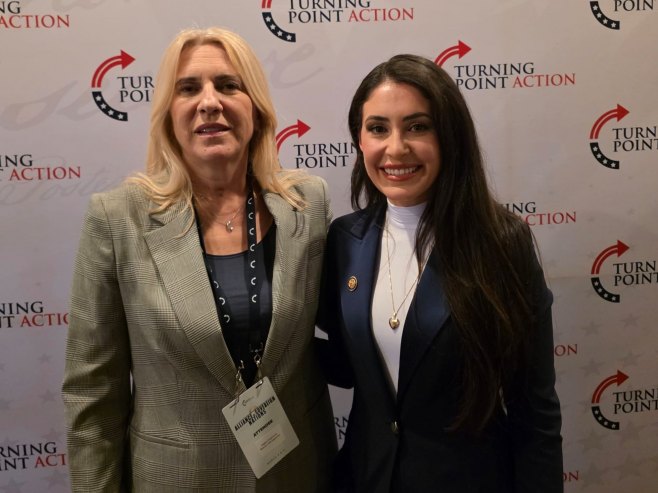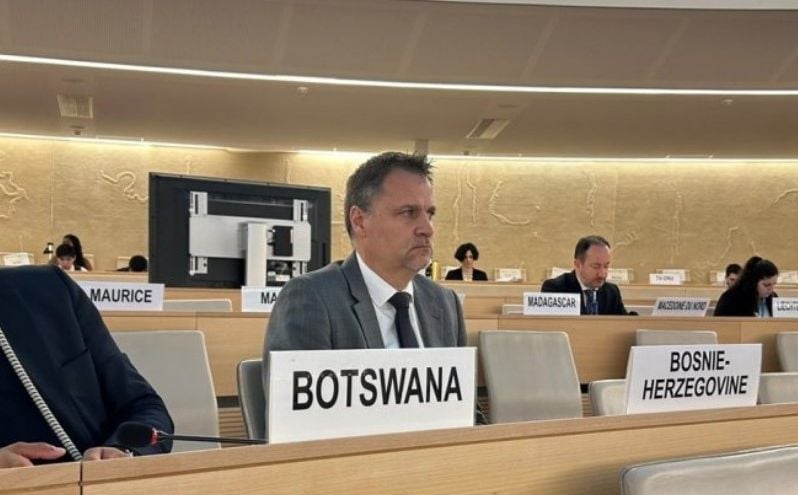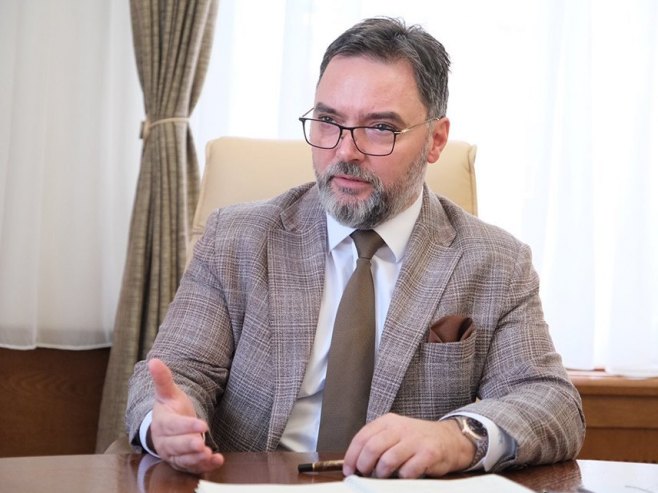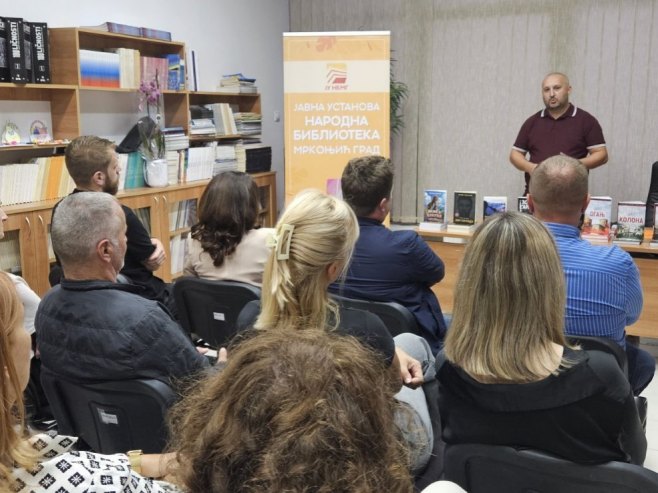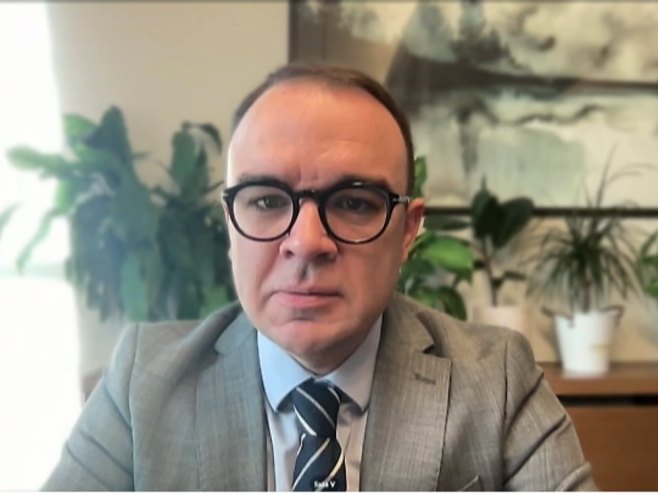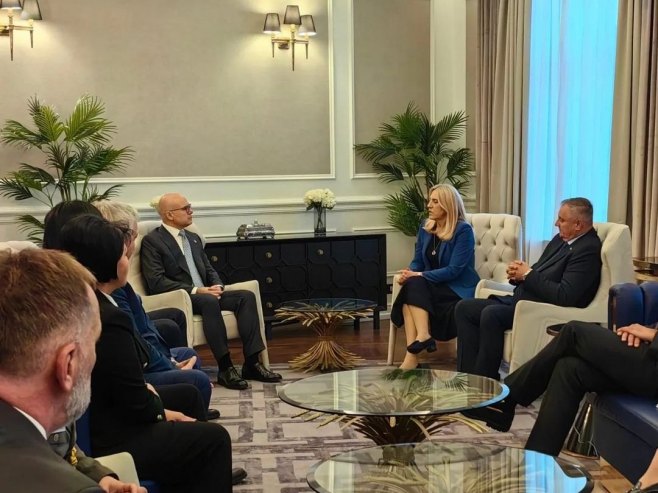Bojan Vujic, the Ambassador of BiH to the UN in Geneva, addressed the session of the United Nations Human Rights Council, stating that the influx of foreign jihadists poses a serious terrorist threat from BiH.
The 55th regular session of the Human Rights Council is being held in Geneva from February 26 to April 5, 2024, as part of a dialogue on the protection of human rights and fundamental freedoms in countering terrorism.
Vujic stated that he is here today as a representative of a country that has been the most dangerous source of terrorism in Europe from BiH for more than three decades.
“Unfortunately, even as BiH works towards EU accession, Western governments have noted that it remains a key source of terrorist threats. For instance, the U.S. State Department last year wrote that, I quote, ‘Terrorist groups continue planning possible attacks in BiH.’ Similarly, last year’s reports from Italian intelligence services suggest that up to 20 Islamist terrorist groups operate in BiH today,” Vujic noted.
He mentioned that BiH had witnessed deadly jihadist terrorist attacks, but “the main impact of terrorism rooted in BiH has been outside the country.”
“Perpetrators of many of the most horrific terrorist attacks in recent decades had significant connections to BiH, including the September 11 attacks in the United States, the Madrid train bombing in 2004, and the Paris attacks in 2015. According to data from the Wilson Center in Washington, among European countries, BiH had the highest number of citizens per capita who went to wage jihad in Syria and Iraq,” Vujic stated.
Why does such a serious terrorist threat emanate from BiH?
“One important reason is the influx of foreign jihadists who came to BiH during its war from 1992 to 1995. Shortly after the outbreak of the war, a large number of jihadists, including Osama bin Laden and two of the September 11 hijackers, came to BiH to aid the Bosniak army in its fight against Serbs and Croats. The Bosniak army incorporated foreign jihadists into what it called the El Mujahid Detachment, which became notorious for terrorizing both fighters and civilians, including numerous beheadings,” Vujic explained in his address.
After the war, he said, the El Mujahid Detachment was disarmed, but unfortunately, some key foreign jihadists remained in BiH with the help of, as he states, sympathetic Bosniak officials, and some of their local followers continued to spread jihadist ideology in certain Bosniak areas of the country.
“Although many Bosniaks in BiH adhere to a moderate form of Islam, the largest political party in BiH representing Bosniaks, SDA, has its roots in the extremist ideology of Islamist groups like the Muslim Brotherhood. Although the party presents a moderate, democratic face to the West, it has never renounced its explicitly Islamist ideology, and its leadership maintains close ties with radical leaders in the Muslim Brotherhood and places like Iran. The roots of SDA in radical ideology and its continued influence in BiH help explain why there hasn’t been enough political will to rid BiH of dangerous jihadist elements,” Vujic stated.
If there’s any doubt about the continued influence of these radical ideologies in BiH, he says, one only needs to consider the very lenient treatment given to Bosniak ISIS fighters returning to BiH, who received little more than a slap on the wrist from BiH courts.
“Most of these dangerous individuals were raised in Muslim Shariah enclaves in BiH that practice radical forms of Islam separate from the official Islamic Community of BiH. In fact, according to a study published by the U.S. Military Academy in 2019, even individuals convicted in BiH for activities related to terrorism received final prison sentences averaging less than 2 years. For example, a defendant who repeatedly provided financial support to ISIS was allowed to pay a minimal penalty of just $15,000 instead of a one-year prison sentence,” Vujic highlighted.
Radical Islamist elements in BiH must not be allowed to flourish, and their path to political power must be resisted, not encouraged.
“Fortunately, the Constitution of BiH includes mechanisms that help prevent the dominance of Islamist politics in the country. The Constitution includes provisions designed to diminish power and ensure the representation of the two autonomous entities of the country and its three constituent peoples. This system, apart from maintaining peace and stability among ethnic groups in BiH, benefits the security of BiH and Europe by helping to prevent the concentration of all power in the hands of Islamist parties,” Vujic noted.
Despite this, he says, some Western officials are trying to undermine the Constitution of BiH in favor of a centralized and strictly majoritarian system where Serbs and Croats would be marginalized, and Bosniaks – potentially Islamist parties – would have all the power.
“To reduce the terrorist threat from BiH, it is primarily necessary to be cautious towards certain Bosniak scholars, clerics, and politicians who present a moderate democratic facade, although their allegiance, current relationships, and writings show adherence to radical Islamist ideology. Such radicals should be called out for what they are, not received in diplomatic salons as esteemed emissaries,” Vujic stated.
Secondly, he says, it is vital to support the constitutional system of BiH as established in Dayton, including its decentralized structure and provisions that ensure the participation of Serbs and Croats in the political process in BiH.
“These steps are important not only for the security of BiH but also for the security of Europe and the world,” Vujic stated.
Source: RTRS
